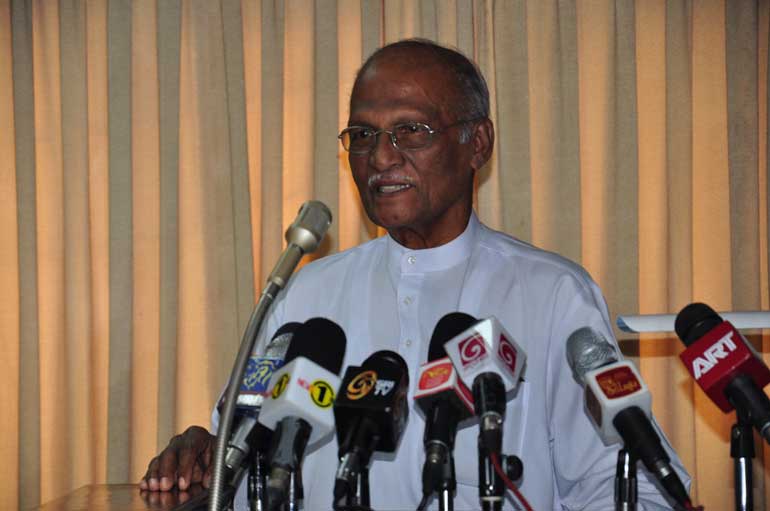Monday Feb 16, 2026
Monday Feb 16, 2026
Saturday, 18 June 2016 00:00 - - {{hitsCtrl.values.hits}}

By Shiran Illanperuma
Author and political scientist S. A. Jothilingam critiqued the lack of meaningful policy ideas to accommodate the Tamil community and their rights as a separate ethnic group, particularly when it comes to issues of defence. He was addressing the launch of a report containing public suggestions for a new constitution.
The 18-page report by the Citizens’ Initiative for Constitutional Change compiled a plethora of recommendations from civil society ranging from electoral and governance reforms to devolution of power to fundamental rights, however Jothilingam charged that it fell short of meeting the aspirations of the Sri Lankan Tamil people.
Said Jothilingam: “Currently Tamils do not feel like they are accepted as a separate ethnic group in the present unitary state. While the report mentions the merger of the north and east it falls short of making recommendations with regards to the police and military which are key concerns for the Tamil community.”
“Devolution of power has to bring tangible results. Power given with one hand cannot be taken away from the other. That system of doing things has to change,” he added.
Jothilingam argued that the basic demand of Tamil people on the island was to be recognised as a separate ethnic group and thereby afforded fundamental rights to preserve their culture and language. He also argued that the Tamil community in the north and the east should be allocated an area of self-governance in the vein of Pondicherry in Tamil Nadu. However he emphasised the need to include discussion of defence policy in these matters.
The report itself states that “the Rights of the Sinhala Buddhist community should be protected”, though this was qualified by recommending “consideration” for the “unique situation of the north”. The report went on to recommend that “maximum devolution of power” should be afforded to the Northern and Eastern Provinces which, in turn, should be amalgamated.
The Sri Lankan Parliament was officially converted into a Constitutional Assembly in April amidst efforts to forge a new constitution that would foster post-war reconciliation and good governance. Chief among these concerns is to find a sustainable solution to the decades old ethnic conflict that has plagued the island.